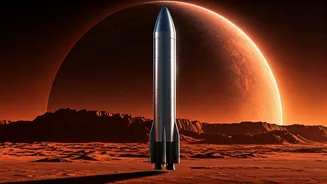Initial Flight Success
The inaugural New Glenn flight, which took place in January, was deemed a success by Blue Origin. The mission successfully placed its payload into orbit
and carried out a series of tests, indicating a promising start for the project. This initial achievement was a critical milestone for the company, laying the groundwork for subsequent missions and validating the core technologies involved. The successful completion of the initial flight demonstrated the reliability of the launch vehicle and the effectiveness of the onboard systems. This early triumph provided crucial data and experience, proving instrumental in the refinement of future launch strategies and operational protocols. Blue Origin gained valuable insights from this initial flight, which were used to improve its engineering processes and overall approach to space exploration. This initial success highlighted the potential of the New Glenn program and bolstered the company's confidence in its ability to compete in the commercial space market.
Second Mission's Importance
The second mission of New Glenn holds significant importance for Blue Origin, acting as a crucial step in the company’s ambitious journey towards Mars. This upcoming launch is essential for demonstrating consistency, proving the long-term reliability of the launch system, and showcasing the company's capabilities in the competitive space sector. A successful follow-up flight is crucial for cementing the confidence of potential customers, investors, and stakeholders, all of whom are keen to see consistent successes. A further achievement would allow Blue Origin to secure more contracts for future launches, thus expanding its revenue streams. Furthermore, each successful mission provides vital practical experience, enabling the refinement of operations, technology, and engineering practices. The cumulative impact of these successful launches will be essential as Blue Origin aims to establish itself as a leader in space exploration and development, eventually supporting its Mars mission aspirations.














